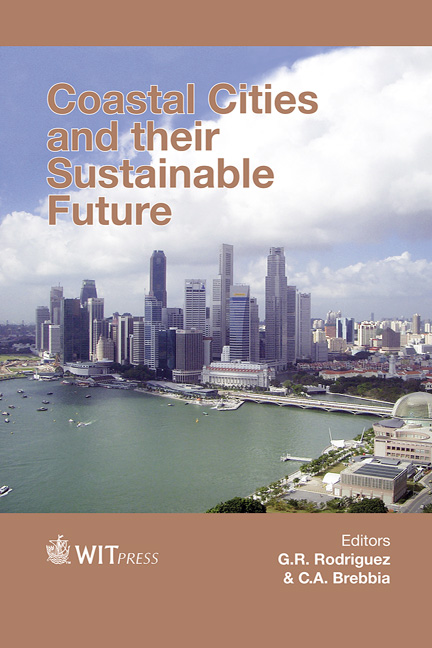Under The Wings Of The Great Garuda: Responsible Port Innovation In The Jakarta Bay Area
Price
Free (open access)
Transaction
Volume
148
Pages
12
Page Range
51 - 62
Published
2015
Size
309 kb
Paper DOI
10.2495/CC150051
Copyright
WIT Press
Author(s)
B. A. Priyambodho, C. Qin, W. Ravesteijn
Abstract
Port extension is economically important but difficult to implement in view of environmental and social objections, as port development projects are often contested innovations. Responsible Innovation (RI) addresses this issue by providing a motor for sustainable development, enhancing employment opportunities and incomes, while minimising detrimental social and environmental impacts. First and foremost, RI reconciles different interests and values, as these occur in the design and development process of any project. This paper illustrates how RI can be used to analyse conflicting values, and how it can contribute to reconciling these values in a project’s design and development phases. We use the Jakarta Bay problems and plans, especially the Great Garuda Plan, as an example, focussing in particular on port expansion versus flooding-related issues and solutions. On the one hand, flooding must be prevented for reasons of safety and sustainability, while on the other hand, Jakarta’s Tanjung Priok port needs to be extended for the purpose of economic growth. The flooding occurs as a result of both the high and rising sea level and the huge discharges in the rivers flowing into the Jakarta Bay. We will focus especially on four dimensions of RI and on non-optimising design and development methods, which help engineers to deal with diverging values. We especially discuss Satisficing, the method of formulating thresholds for values and then selecting any option that at least meets these thresholds. In this paper, we create threshold values for safety (flooding), economics (port extension) and health and environment (air pollution) and apply these to alternative solutions. It is shown that RI will lead to better projects, especially in terms of societal and environmental values, and will thus reduce public resistance to such projects, because all relevant stakeholder values such as safety and sustainability are taken into account during the innovation process.
Keywords
port cities, economic growth, subsidence, flooding, port extension, responsible innovation, conflicting values, satisficing





